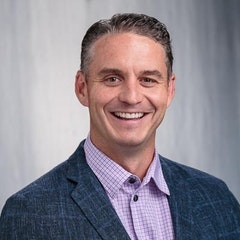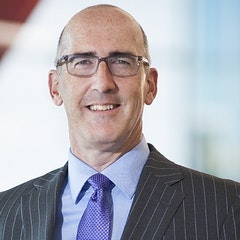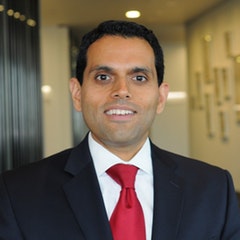This article is part of Carrier Management’s series on the Future of Insurance.
Guy Goldstein, Co-Founder and CEO, Next Insurance, believes an insurance industry today lacking personalization needs to move to one that tailors products to business customers.
 Guy Goldstein, Co-Founder and CEO, Next Insurance
Guy Goldstein, Co-Founder and CEO, Next InsuranceQ: What major changes do you see on the horizon for the property/casualty insurance industry in the next 10 years?
Goldstein (Next Insurance): When we look at the future of insurance, there are two parallel trends that can be seen. The first change comes from technology, which will impact risk. The second change is how insurance is going to be serviced to customers.
The Technology Shift. Technology is expected to advance exponentially in the next 10-15 years, increasing by thousands of percent in its capabilities compared to what we see today. There are many future predictions that are becoming more real every day, such as the likelihood that automation will remove humans from the driver’s seat of vehicles, the printing of human organs, which reduces medical costs significantly, a highly intelligent home that can protect itself from potential harm, and many more.
In such an environment, the risks will dramatically decrease, as will the costs to remedy these risks, ultimately decreasing the cost of insurance. To modernize, insurance companies will have to reduce their fixed cost to be able to cope with the reduction in premiums.
Serving the Customer. The insurance industry lacks personalization, with risk factors and underwriting still relatively generic. As insurers are able to compile more sophisticated and in-depth data about risk, it will be easier to tailor the insurance needs to the specific customer. In business insurance today, we still have catchall insurance types such as general liability, inland marine, employee liability, etc. What we should have is insurance that is tailored to a plethora of subcategories, such as insurance for an Indian restaurant, insurance for a wedding photographer or insurance for a litigation lawyer.
There is little doubt that the entire insurance process will be direct and online in the future. There will no longer be the need for a mediator (in this case, an agent) between the insurance provider and the customer, as this online system will enable the customer to buy, maintain and handle claims all in one place.
The insurance system today is built on agents, actuaries and underwriters, who will be replaced with simple-to-use online interfaces, algorithms and artificial intelligence. With less personnel required and new technologies introduced, the costs of insurance will dramatically decrease, freeing up more of the insurance premiums to pay claims as opposed to serve the internal needs of the insurer.
Read more Future Insights by person
 Mike Albert, Co-Founder, Ask Kodiak
Mike Albert, Co-Founder, Ask Kodiak Tim Attia, CEO and Co-Founder, Slice Labs, Inc.
Tim Attia, CEO and Co-Founder, Slice Labs, Inc. Arun Balakrishnan, CEO, Xceedance
Arun Balakrishnan, CEO, Xceedance Ilya Bodner, CEO, Bold Penguin
Ilya Bodner, CEO, Bold Penguin Bobby Bowden, Executive Vice President, Chief Distribution and Marketing Officer, Allied World
Bobby Bowden, Executive Vice President, Chief Distribution and Marketing Officer, Allied World Andy Breen, Senior Vice President, Digital, Argo Group
Andy Breen, Senior Vice President, Digital, Argo Group Adam Cassady, CEO, Tyche Risk
Adam Cassady, CEO, Tyche Risk Chris Cheatham, CEO, RiskGenius
Chris Cheatham, CEO, RiskGenius Trent Cooksley, Head of Open Innovation, Markel Corporation
Trent Cooksley, Head of Open Innovation, Markel Corporation Mike Foley, CEO, Zurich North America
Mike Foley, CEO, Zurich North America Guy Goldstein, Co-Founder and CEO, Next Insurance
Guy Goldstein, Co-Founder and CEO, Next Insurance Mike Greene, CEO & Co-Founder, Hi Marley
Mike Greene, CEO & Co-Founder, Hi Marley Brian Hemesath, Managing Director, Global Insurance Accelerator
Brian Hemesath, Managing Director, Global Insurance Accelerator Russell Johnston, CEO, QBE North America
Russell Johnston, CEO, QBE North America Dr. Henna Karna, Managing Director and Chief Data Officer, XL Catlin
Dr. Henna Karna, Managing Director and Chief Data Officer, XL Catlin Tony Kuczinski, President and CEO of Munich Re, US
Tony Kuczinski, President and CEO of Munich Re, US Rashmi Melgiri, Co-Founder, CoverWallet
Rashmi Melgiri, Co-Founder, CoverWallet David W. Miles, Co-Founder and Managing Partner, ManchesterStory Group
David W. Miles, Co-Founder and Managing Partner, ManchesterStory Group Pranav Pasricha, CEO, Intellect SEEC
Pranav Pasricha, CEO, Intellect SEEC Mike Pritula, President, RMS
Mike Pritula, President, RMS Kathleen Reardon, CEO, Hamilton Re
Kathleen Reardon, CEO, Hamilton Re Jeff Richardson, Senior Vice President, OneBeacon Insurance Group
Jeff Richardson, Senior Vice President, OneBeacon Insurance Group Vikram Sidhu, Partner, Clyde & Co
Vikram Sidhu, Partner, Clyde & Co Christopher Swift, CEO, The Hartford
Christopher Swift, CEO, The Hartford Rebecca Wheeling Purcell, Schedule It
Rebecca Wheeling Purcell, Schedule It Keith Wolfe, President US P/C—Regional and National, Swiss Re
Keith Wolfe, President US P/C—Regional and National, Swiss Re
With less personnel required and new technologies introduced, the costs of insurance will dramatically decrease, freeing up more of the insurance premiums to pay claims as opposed to serve the internal needs of the insurer.—Guy Goldstein, Next Insurance

Get the responses of all 26 leaders neatly packaged in single PDF download. More than 43 pages of content.





















 Lessons From 25 Years Leading Accident & Health at Crum & Forster
Lessons From 25 Years Leading Accident & Health at Crum & Forster  Allianz Built an AI Agent to Train Claims Professionals in Virtual Reality
Allianz Built an AI Agent to Train Claims Professionals in Virtual Reality  Retired NASCAR Driver Greg Biffle Wasn’t Piloting Plane Before Deadly Crash
Retired NASCAR Driver Greg Biffle Wasn’t Piloting Plane Before Deadly Crash  Execs, Risk Experts on Edge: Geopolitical Risks Top ‘Turbulent’ Outlook
Execs, Risk Experts on Edge: Geopolitical Risks Top ‘Turbulent’ Outlook 







